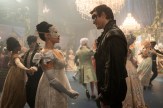Who’s afraid of iambic pentameter? Not the Northeastern Shakespeare Society
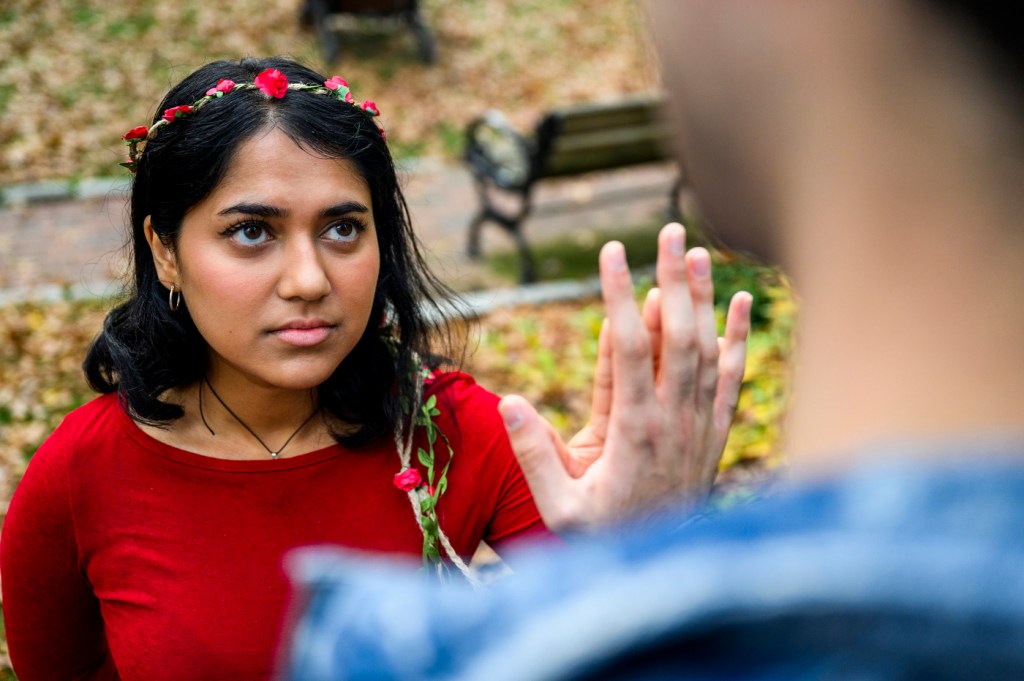
What happens when you mix a love of iambic pentameter and drama with students majoring in science and other non-theater disciplines?
You get the Northeastern Shakespeare Society, a troupe of students dedicated to bringing the bard’s greatest works to life in minimalist settings with free admission.
The sign outside the room where the Northeastern Shakespeare Society rehearsed recently in Ryder Hall indicates it is a Chinese language classroom.
But inside, the language being spoken is Elizabethan English, as students rehearse for this month’s production of “Romeo and Juliet.”
The three shows will take place Nov. 15 (7:30 p.m.) and Nov. 16 (1:30 and 7:30 p.m.) at the Theatre Lab on the third floor of Ryder Hall.
Chairs are pushed up against the wall to create an open space where Trisha Barua, a fourth-year business and environmental sciences major, addresses the vial of sleeping potion she will take to fake her death as Juliet Capulet.
“Romeo, Romeo, Romeo. Here’s drink. I drink to thee!” Barua says before dropping gracefully to the floor as the now-comatose, newlywed bride of Romeo Montague, the banished scion of a rival family.
This is her first production with the Northeastern Shakespeare Society, and Barua says she’s loving every minute of it.

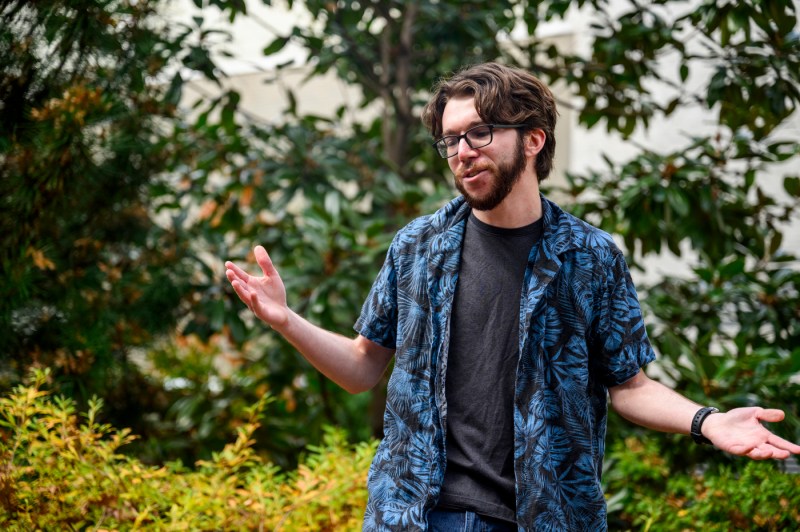
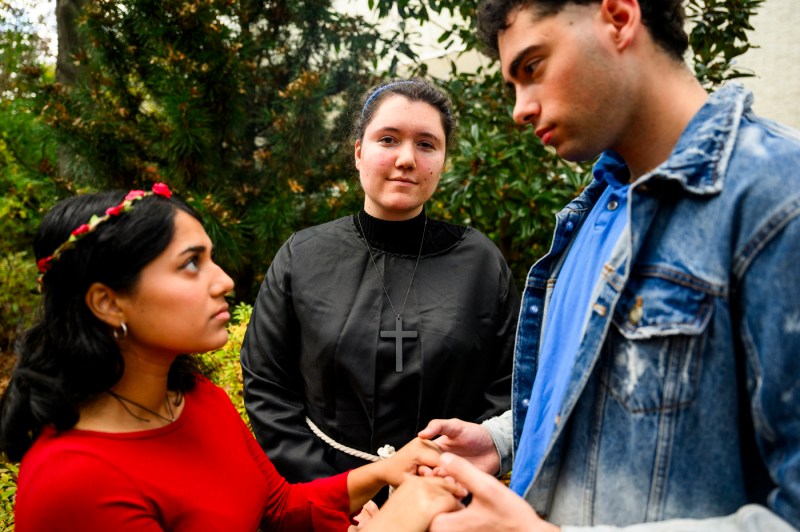
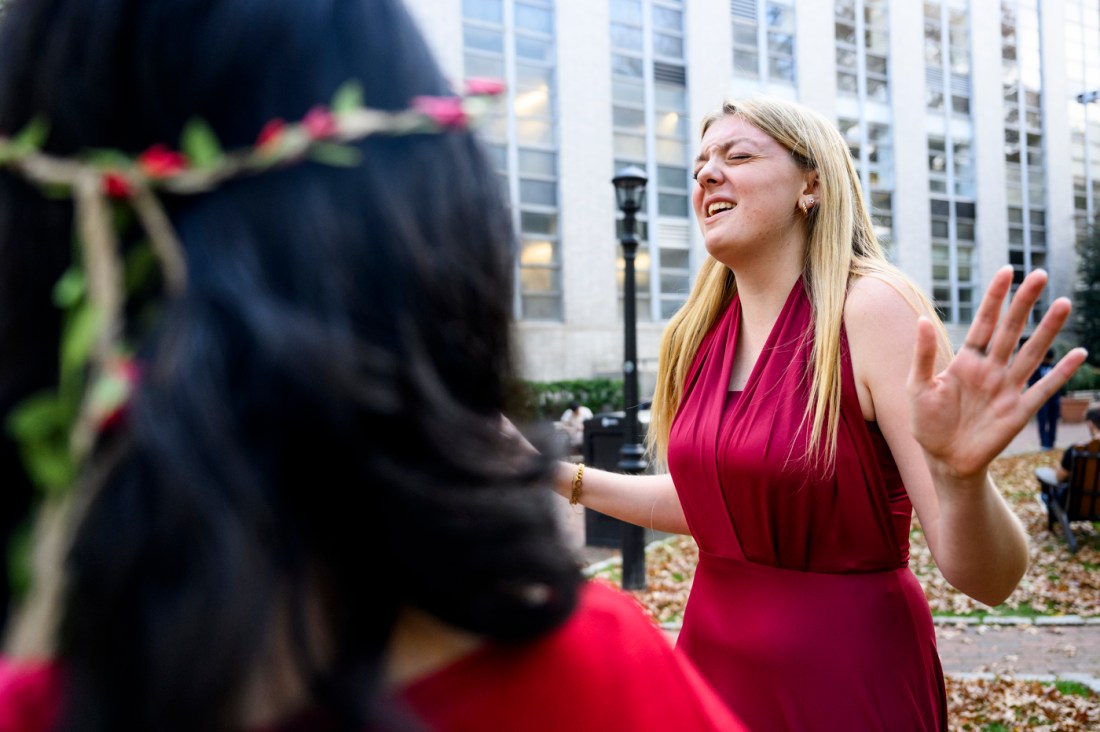
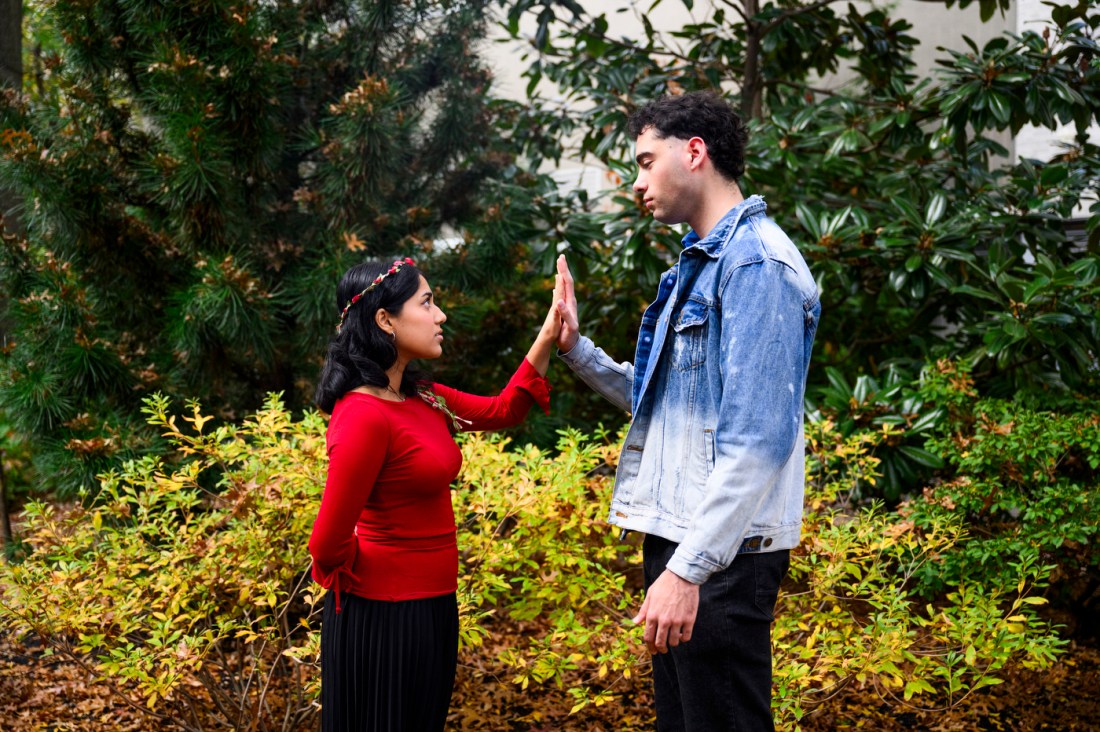
“When I saw they were doing ‘Romeo and Juliet,’ I just had to audition,” she says. “It’s a very special play to a lot of people.”
Barua says she appreciates the way the Shakespeare society is open to non-theater majors and puts on a show every semester in the black box at Ryder Hall, the Theatre Lab, using minimal sets and costumes.
In this production, the Capulets will wear red and the Montagues, blue.
“It’s unplugged,” Barua says. “You use your imagination.”
Making Shakespeare accessible
Making Shakespeare accessible to both players and audience members has been part of the mission of the club since it started about nine years ago, says Elizabeth Thorne, director and co-president of the Northeastern Shakespeare Society.
Too often the age-tested “wit and wisdom” of William Shakespeare’s words are thought of as the provenance of a certain group of people, such as the upper class, says Thorne, a religious studies major interested in a career in social work.
She says making the shows free and open to the community demystifies the works of the English playwright born in 1564 and reduces the intimidation factor of attending his plays.
“Shakespeare’s themes are universal and should be able to be viewed by everyone,” says Ainsley Niven-Merriman, assistant director of the Northeastern Shakespeare Society.
A biochemistry major, Niven-Merriman first performed Shakespeare in a community theater production of “Macbeth” with her father.
At Northeastern, she auditioned for and won a role in the Shakespeare Society’s production of “King Lear.”
But even better, Niven-Merriman says, she found a like-minded group of lovers of iambic pentameter, the rhyme scheme in which many of Shakespeare’s lines are written.
“It’s a really nice community, so I decided I’d keep” active with it, Niven-Merriman says.
There have been Shake Skate events where the group ice skates together. And in addition to regular play rehearsals, the society holds “play clubs” every other week that are open to everyone who is interested in reading Shakespeare.
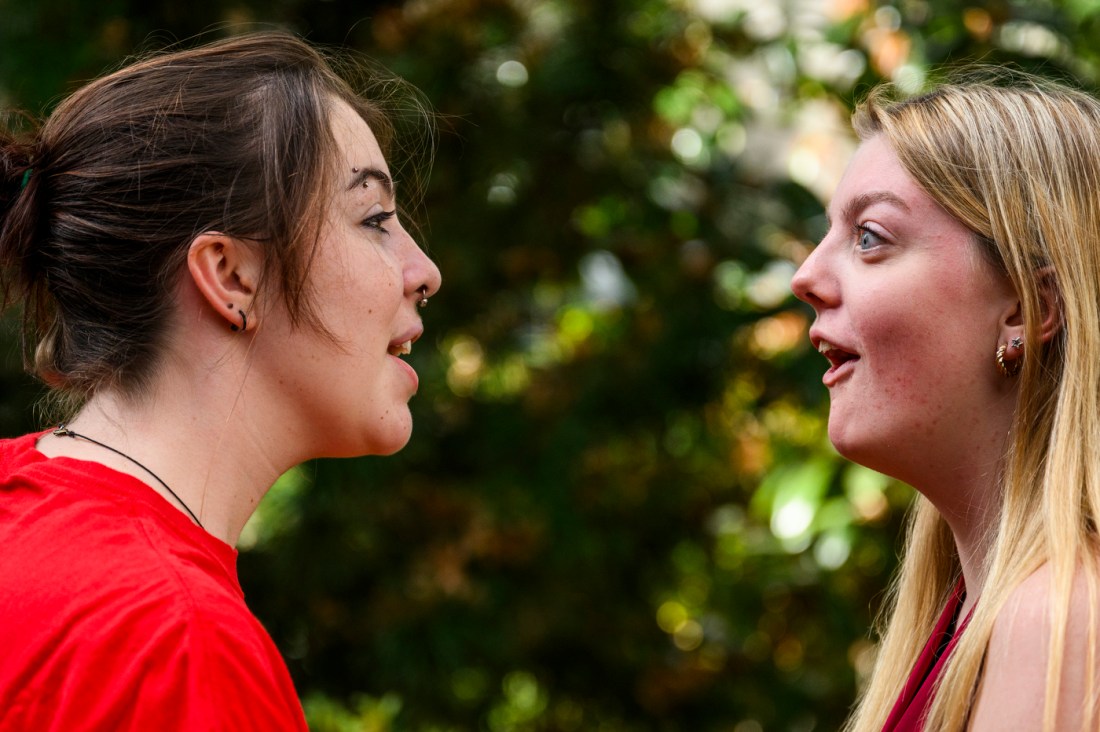
It’s like a book club
Thorne says the play club is like a book club but for Shakespeare’s plays.
“We vote on a play to read and every other week we gather in one of the classrooms in Curry to discuss it. We bring tea and snacks. People can ask questions, and we have a lot of fun,” Thorne says.
“We make big character maps and sometimes read some of the parts out loud,” she says.
Featured Posts
“Shakespeare can be really tricky, especially if you’re not exposed to it often,” Thorne says. “This can be a great way for people that are unsure about performing to dip their toe in the pool.”
The more students get exposed to Shakespeare, the more comfortable they feel,” Niven-Merriman says.
“Doing these shows and the play club really helps you grow an appreciation and love for Shakespeare,” she says.
Barua says she loves the way Shakespeare’s use of iambic pentameter makes words sound like music.
“That is one of the things that makes Shakespeare so fun to me,” she says. “You have to really know what you’re saying and explicitly act it out, which I think is different from other forms of acting.”
Emotional expression
Elle Rasmussen, a media and screen studies major who plays Romeo’s buddy Benvolio in this month’s production, says the Northeastern Shakespeare Society is a good emotional outlet on tough days.
“When I have a bad day, I say, ‘Great, I can use this for this sad scene I’m supposed to do,’” Rasmussen says.
“The idea that I get to step into a different character is sort of therapeutic,” she says.
Rasmussen says she also enjoys the physicality of Shakespeare’s plays, calling the fight scenes “really cool,” albeit “a little scary.”
History and political science major Hunter Rodriguez says whatever direction his future takes him — as a lawyer, historian or writer — he wants to continue acting, including in plays by Shakespeare.
“I’m someone who enjoys artistic expression, and I don’t think any writer before or since has been able to capture what it truly means to be human like Shakespeare does with his language,” says Rodriguez, who is playing Romeo.
“I feel as though many people are drawn to the theater because they can’t express certain things they want to express in their day-to-day lives,” he says. “Here they’re able to be themselves, but also become other people — experience what it’s like to suffer loss or experience joy or fall in love.”
“After class, you get to come to this place and express yourself in such a wonderful way,” Barua says.
“Acting with an ensemble teaches you about trust, compassion, and empathy,” she says. “Performing in front of an audience teaches you about self-confidence and oration. Putting yourself in another person’s shoes teaches you about who you are and who you have the potential to become.”
Attendees are asked to register online to make sure they get a seat at the theater.







